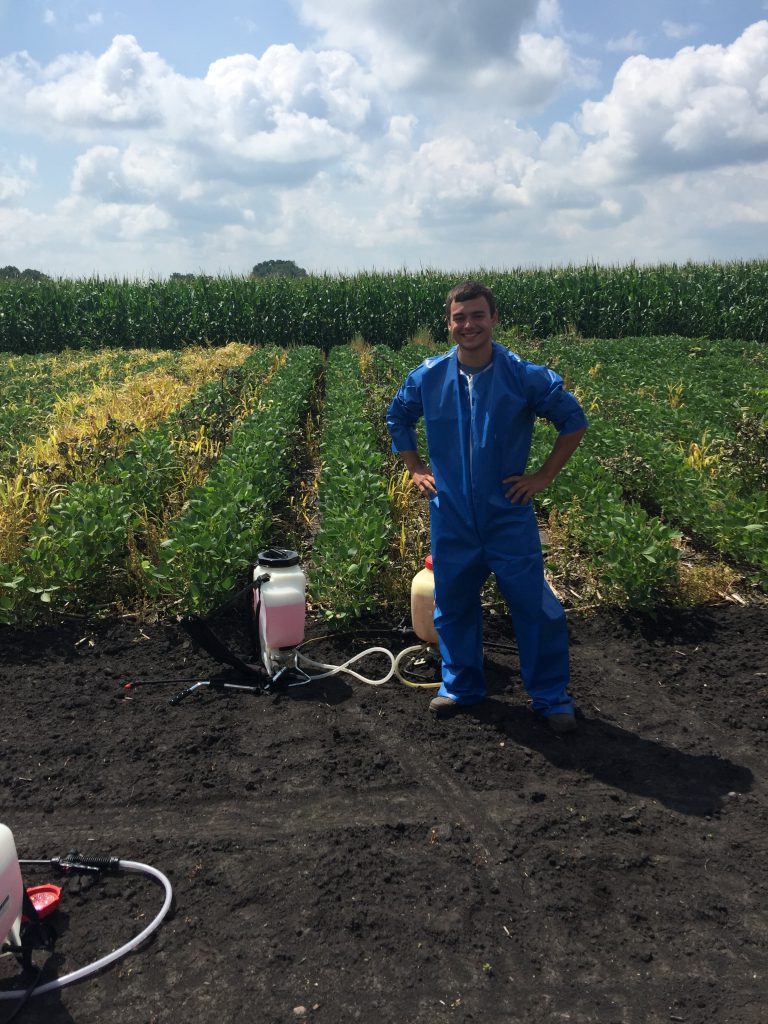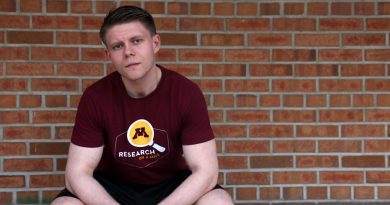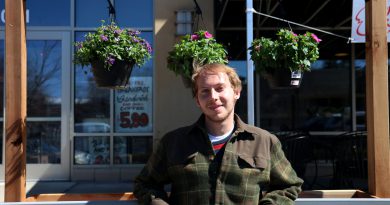Raised on a dairy farm and now headed for politics, this New Ulm senior wants to work for real solutions facing rural America
Loren Dauer is finishing his senior year at the University of Minnesota, but his mind often wanders to his family dairy farm in New Ulm, where for the first time in three generations, his father is selling cattle and renting out land.
Dauer is a conservative Republican, who believes in a hands-off approach when it comes to government intervention in the economy. But as the future appears uncertain for family farms, Dauer is struggling with how to embrace policies that offer much-needed assistance to farms like his family’s.
It’s a quandary that has, in part, motivated him to one day run for public office, says the political science student. Politicians, he says, don’t do enough to represent rural people in an urban-oriented political system.
“I think rural people are the minority, so the topics that people care about and the things they bring up in political talks are not going to be about rural interests,” Dauer says. “I wish more people knew more about agriculture. I wish they weren’t so ignorant about farmers and what happens on farms.”
Looking past the farm
Dauer knew he wanted to go into politics as a junior in high school, after listening to his father discuss politics and realizing how much it affected their family business. His dad wasn’t always on board with his career choice, But as it became clear that the family farm wasn’t going to be his future, his father warmed to the idea.
“I think he would love to have me take over the farm, like his father and his father before him,” Dauer says. “It’s just that it is such a hard industry now.”

The family farm has been in a perpetual decline for decades. American farms are fewer and much bigger, according to a March 2018 report published by the U.S. Department of Agriculture. The shift from family farms to large corporate-run ones has been especially apparent in the dairy industry, according to the report. The demanding nature of work on a dairy farm, as well as the cost of equipment, makes it far easier for corporations with the ability to consolidate to turn a profit.
This has landed the Dauers, and others, in a political struggle that has intensified over the past two years. The Trump administration made big promises to rural voters, including supporting the Renewable Fuel Standard, eliminating the estate tax on inherited land and rolling back regulations on run off. However, while the tough talk on trade was popular during the election, Trump-imposed tariffs are hitting American farmers where it hurts. In 2018, American exports of products by other countries dropped 37 percent in retaliation, creating a trade war.
“A lot of the rural community is really frustrated with the way he handled the trade war with China,” Dauer says. “A lot of farmers are hurting. We’ve seen a huge market loss, and this has the potential to be detrimental to the agriculture industry.”
Tough times persist
And according to Dauer, bailouts just aren’t cutting it. The Trump administration announced last summer that it would be bailing out farmers that were struggling after being shut out of foreign markets with a total of $12 billion in aid. But Dauer says his father is only receiving $50 a month.
“It doesn’t even compare to what we need. I don’t know where they got that number, but for a lot of small farmers, it really doesn’t help. It might cushion the blow for big farms, but it didn’t come close for my family,” Dauer says.
As a conservative, Dauer hates the idea of using government to spur that change in the economy. However, as someone who grew up on a small family farm, Dauer believes implementing a quota system, similar to the Canadian system, could answer the prayers of many small farmers.
In that system, farmers can receive premiums if they don’t overproduce. It’s controversial, but Dauer believes it could put the power back in the hands of small-time farmers.
Farm life prepared him
Because he grew up on a farm where household chores included hours of farm labor like shoveling manure, milking cows and harvesting crops, Dauer says he has a better understanding of the life and the struggle of rural people. So he believes he can better represent it.
And while Dauer acknowledges that he had a tougher childhood than most students on the Twin Cities campus, it has been even harder to watch his family legacy deteriorate. These experiences are what will make him a good public servant, he says
“That was the idea in getting into politics,” Dauer says, “that somehow I could effect change.”
Despite identifying as a hardline Republican, Dauer has worked under several Democratic politicians, including Gov. Tim Walz who drew his interest partly because of the governor’s own rural roots. He says he judges candidates not by party but by motivations and qualifications. Republicans simply do not always meet his standards.
Dauer’s dream is to be in a position where he can advocate for his people; he no longer wants rural people to be political pawns of politicians, as they can sometimes unwittingly be.
Last summer, Dauer went to Washington D.C., to work for Rep. Collin Peterson, whom he describes as a “hero when it comes to representing agriculture, especially on the Democratic side.” Peterson, the chairman of the House Agriculture Committee and a strong advocate for farm policies, is one of the only farmers left in Congress. One day, Dauer hopes Peterson will become his employer.
At his internship, Dauer says he did a lot of menial work, like answering phone calls and scheduling meetings. It wasn’t the work that enticed Dauer as much as “being right there, watching everything happen.”


